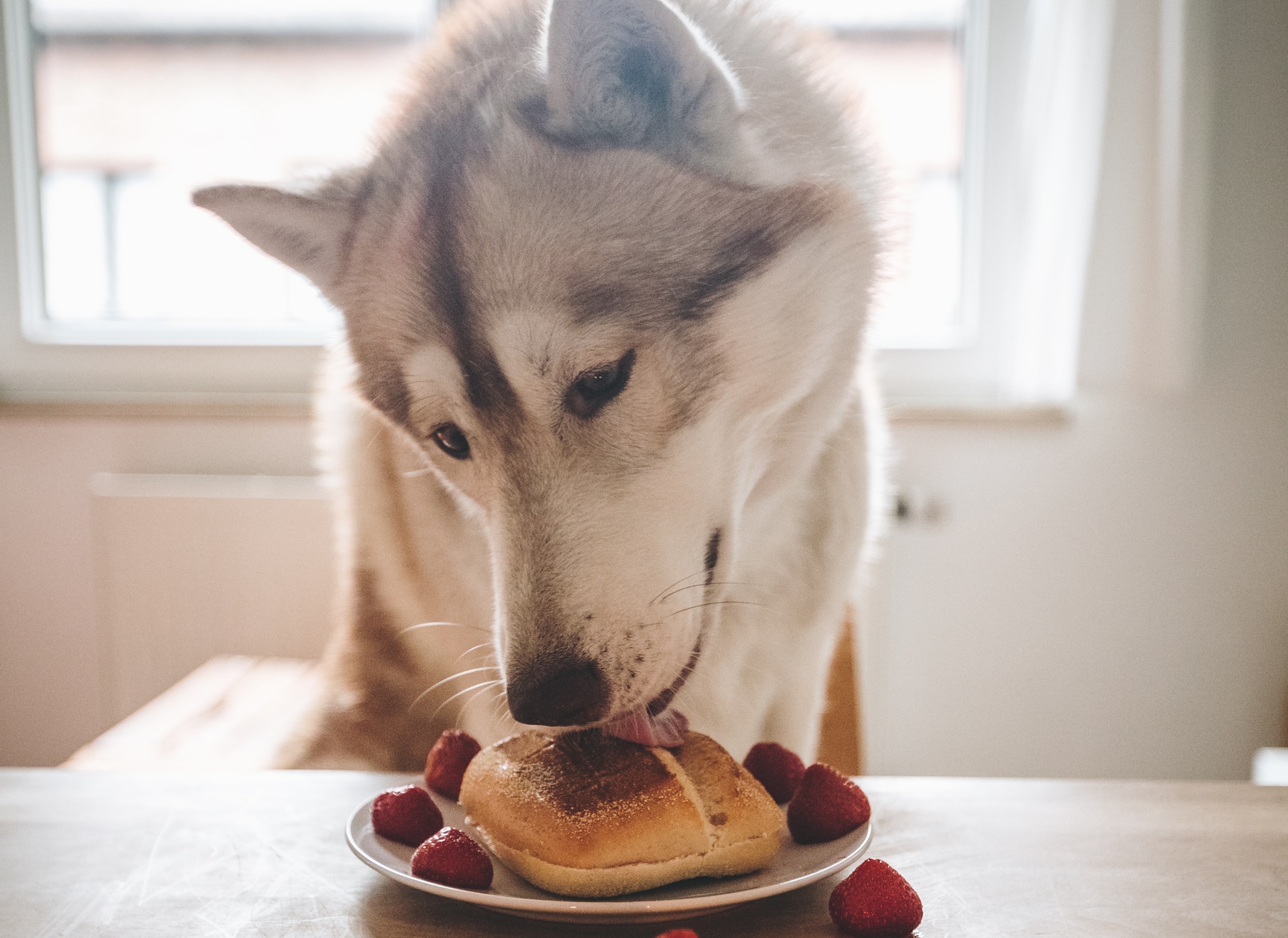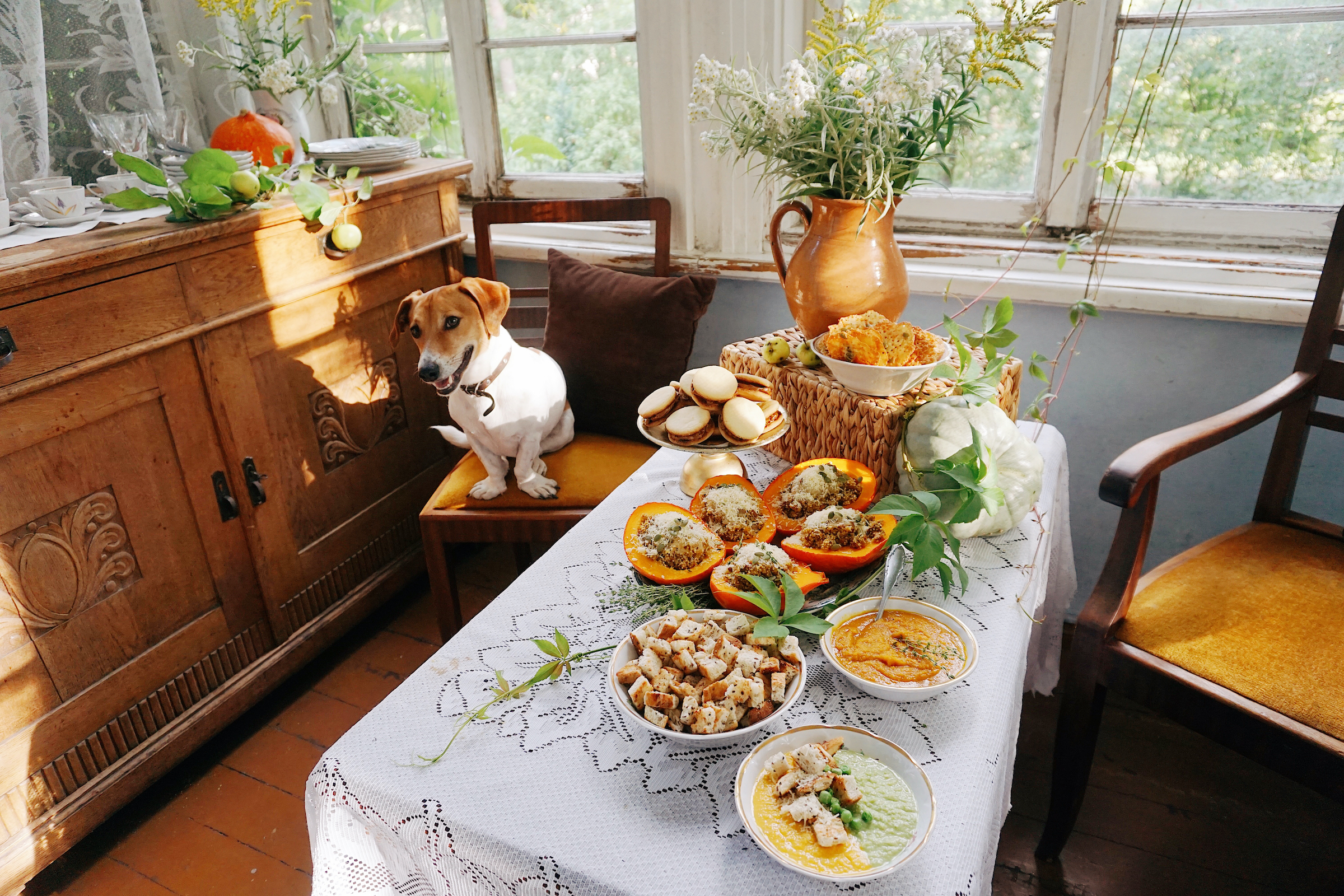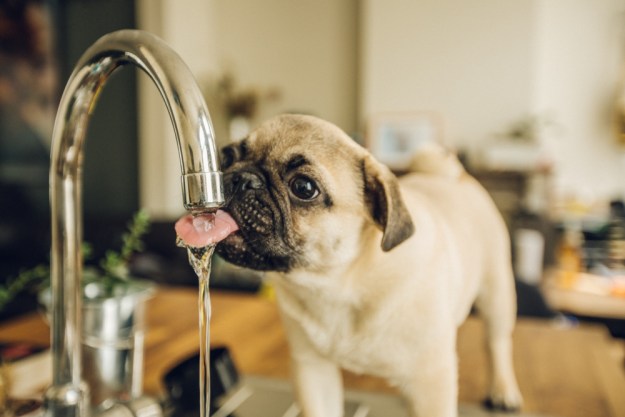As everyone gathers around the table for this year’s Thanksgiving feast, make sure your four-legged family members are included, too. Not all people food is safe for dogs, so it will take a little more thought and effort than just tossing over some table scraps.
If you’re wondering if dogs can eat turkey or other Thanksgiving fare, you’ll just want to be sure whatever you’re giving them is safe. A lot of the ingredients and dishes that are already on your table can be slightly modified to be made safe for your pup, so preparing people food for dogs can be easier than you think. Read on to get some canine-friendly ideas for feeding your dog on this yummy, cozy holiday. Remember to be grateful for your pup, too!
Here are some of the best (and worst) Thanksgiving foods for dogs.

Can dogs eat turkey? How to prepare Thanksgiving turkey for dogs
Turkey, cooked plainly and without the skin or bones, is safe for canine consumption. In fact, many dog foods and treats include this poultry as one of their main sources of protein, so there’s a great chance your pup already loves the taste.
Here’s the catch: The turkey on your Thanksgiving table is most likely not plain. Apart from any seasonings on the skin, the stuffing on the inside contains ingredients that can be toxic, or even fatal, to dogs. This includes onions, garlic, and spices…at the least!
If those puppy-dog eyes are starting to get to you, a small piece of meat from an area that wasn’t touching other ingredients will probably not harm your dog, according to the American Kennel Club (AKC). Make sure there is no skin or bone! Still, if your dog is known for a sensitive stomach, you may want to prepare her own plain, boiled turkey (in moderation, of course) to celebrate the holiday.

Can dogs eat Thanksgiving food? Which ingredients are safe for dogs to ingest?
Luckily for your pup, there are several Thanksgiving foods she can safely partake in — with your permission, of course. Keep in mind that dogs with allergies or food intolerances may be more limited on this holiday, so it’s never a bad idea to have some spare kibble and treats lying around.
Starches like potatoes, yams, and corn are safe and satisfying for pups with an appetite, though make sure they’re prepared plain before you grab some for your dog. Butter and oils aren’t toxic for canines, but they will result in a case of the runs. Unfortunately, this does rule out mashed potatoes, due to all the added ingredients.
Many fall fruits and veggies are just as delicious for your dog as they are for you — think pumpkin, apples, squash, green beans, and peas. Of course, these also need to be kept plain for your pooch. While cranberries on their own are healthy for dogs in small quantities, too, avoid sharing the cranberry sauce that’s on your table. Also, make sure they aren’t mixed with other fruits that are dangerous to pups, like grapes or raisins. These small fruits can hide nearly anywhere!

Though turkey and some produce are A-OK, what Thanksgiving foods are not safe for dogs?
Although there’s a lot to share with your furry friend, there’s also a lot you should avoid. Here’s a comprehensive list of Thanksgiving foods and ingredients that shouldn’t be offered to dogs, thanks to the AKC:
- Turkey bones, skin, and gravy
- Stuffing
- Chocolate
- Sugar
- Artificial sweeteners (especially xylitol)
- Alcohol
- Grapes and raisins
- Onions and scallions
- Garlic
- Creamed peas
- Mashed potatoes
- Yeast dough
- Spices
- Casseroles
Creamy dishes like creamed peas and mashed potatoes are too high in fat to safely give to your pup. The good news is that both peas and potatoes can be prepared differently to be safe for your pooch, so she can have a Thanksgiving dinner of her own.
Always use your best judgment when deciding whether to share a piece of human food with your dog. The ingredients that are the most harmful aren’t always visible to the naked eye, so if you’re not sure, skip it for now. As they say, better safe than sorry!
If you feel especially strongly about including your pup in the Thanksgiving feast, you can always make your pup their own festive fall dog treats to savor. They’ll love being able to snack on something a little different, and you’ll fall in love with their adorable autumnal vibes.
You can relax and enjoy your Thanksgiving now that you know what your furry friend can and can’t partake in. It may take a little prep work to make a whole separate dish for your dog, but it’ll be oh-so-worth-it to please her. Happy Thanksgiving, pet parents!
Editors' Recommendations
- The Best Dry Dog Food of 2023 for a Balanced Diet
- Xylitol is dangerous for dogs: 10 surprising products that contain it as a hidden ingredient
- Are Starbucks Puppuccinos bad for dogs? Here’s what veterinarians have to say
- Why is my puppy not eating? Find out why and how to help them thrive
- What can I give my dog for diarrhea? 5 simple remedies to treat an upset stomach




